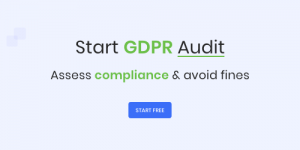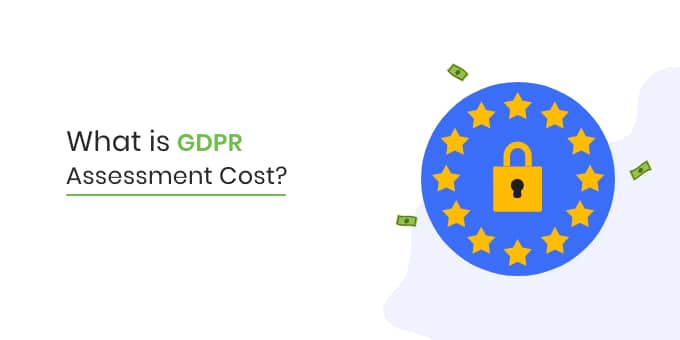GDPR assessment cost
The GDPR assessment cost is an evaluation assessment for the new Data Privacy law across Europe. In this present day, companies are oblige to comply with the rules under the General Data Protection Regulation (GDPR). So, it has seen that certain aspects have a great impact on GDPR assessment costs. For example, the scope of the environment, nature of the collected data. GDPR advisors can cost anywhere between £500 to £1500 per day in terms of their fee. Organisations can also choose to appoint an outsourced GDPR or Data Protection Officer (DPO) to minimize costs.

GDPR for small business
Moreover, several aspects, like the size of your organisation and volume of personal data, affects the cost of GDPR assessment. Certain steps can take while assessing the GDPR process. Each step has a particular cost and time requirement. So, the GDPR assessment covers the data discovery process, customer GDPR privacy notifications, and training of employees.
The cost of GDPR assessment can be reduced by following the steps below:
- Allocating a Data Protection Officer (DPO) According to the law,. There is no need for a Data Protection Officer (DPO) for GDPR assessment. However, it would be beneficial for you to assign the charge of GDPR assessment to an internal employee. A team of employees or an outsourced Data Protection Officer (DPO). If you feel the need for a DPO. And hire a person with Data Protection Officer expertise, it will cost you much more.
- Record of Processing Activities This step is the most meaningful one. Here you need to map the flow of protected data within your organization. With the help of this inventory, you will be able to gauge processing activities. Identify the reasons for processing personal data and the transfer of personal data to countries located outside of the EU. Categories and data will raise the cost because larger data will increase the numbers. Whereas, the volume of low data will consume less time and money.
- Gap Assessment This step will solely deal with comparison amid current controls, policies, and procedures against GDPR control requirements. The initiative should take by asking the key question: Do you have adequate policies and procedures in place to address data subjects’ rights defined under the GDPR?
Essentials
- Policies and Procedures Here, you will update and implement initial and ongoing policies and procedures to address GDPR data protection requirements.
- Modify Processes To verify aspects like data life cycle and rights of data subjects, modification of processes requires under GDPR assessment.
- Train employees: To implement new controls to comply with the GDPR and reduce ongoing costs, staff must train to meet GDPR obligations.
- Monitor compliance: You must assign an internal employee to supervise the GDPR assessment. It includes many departments like IT and Operations, Development, Marketing, Sales, etc. It comprises training employees, following up on training and investment in the security technologies required for management of data subject access requests.

